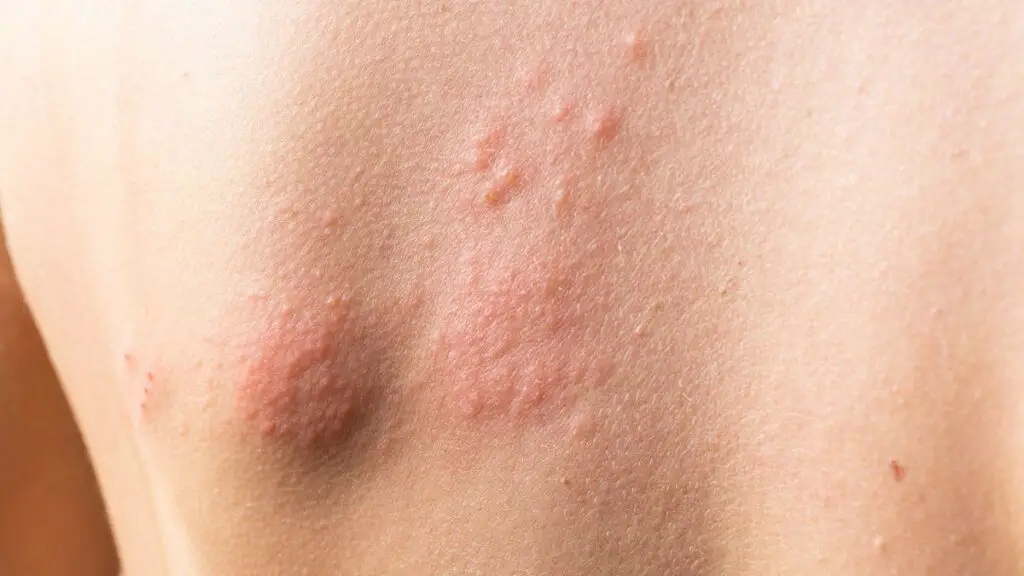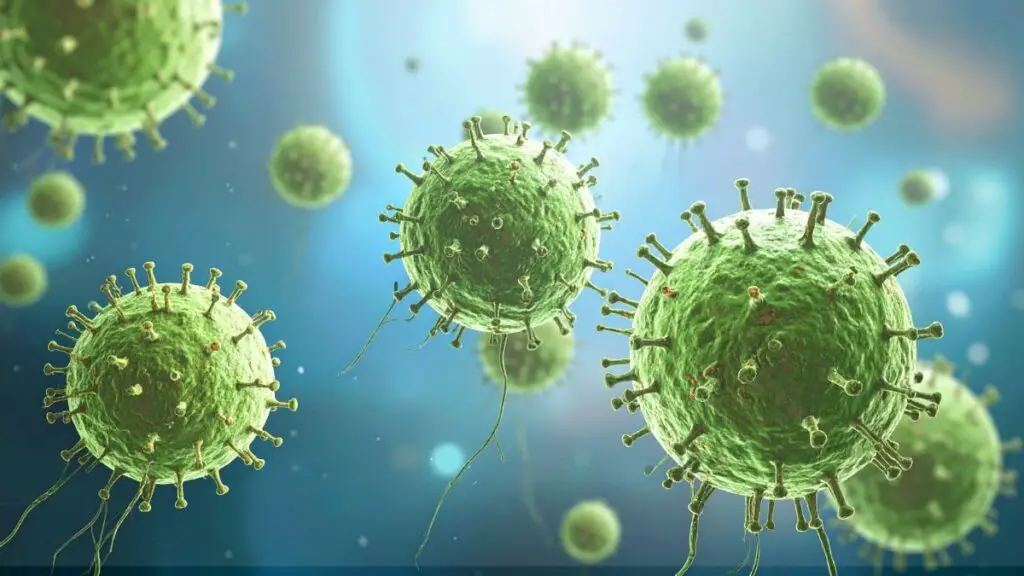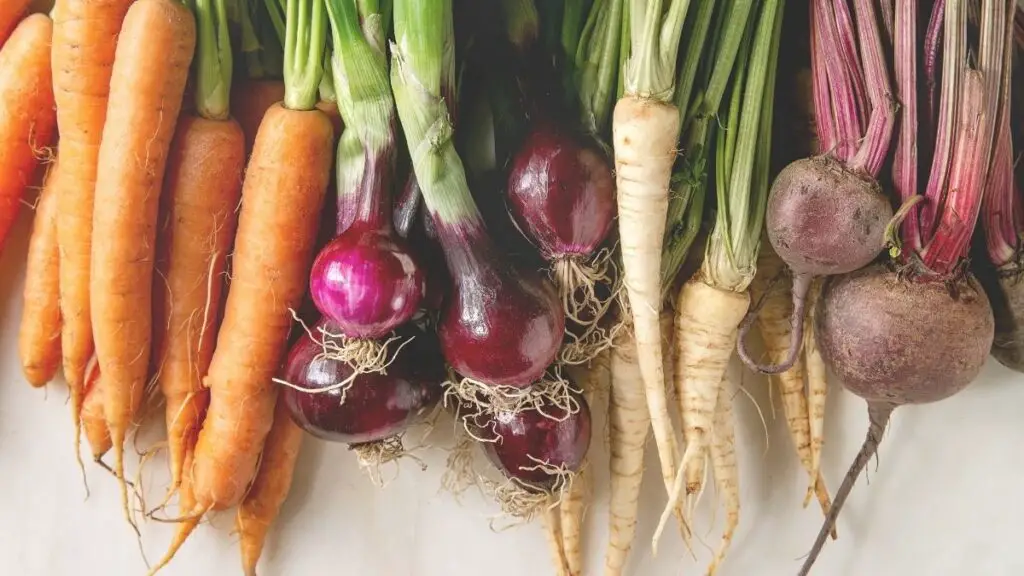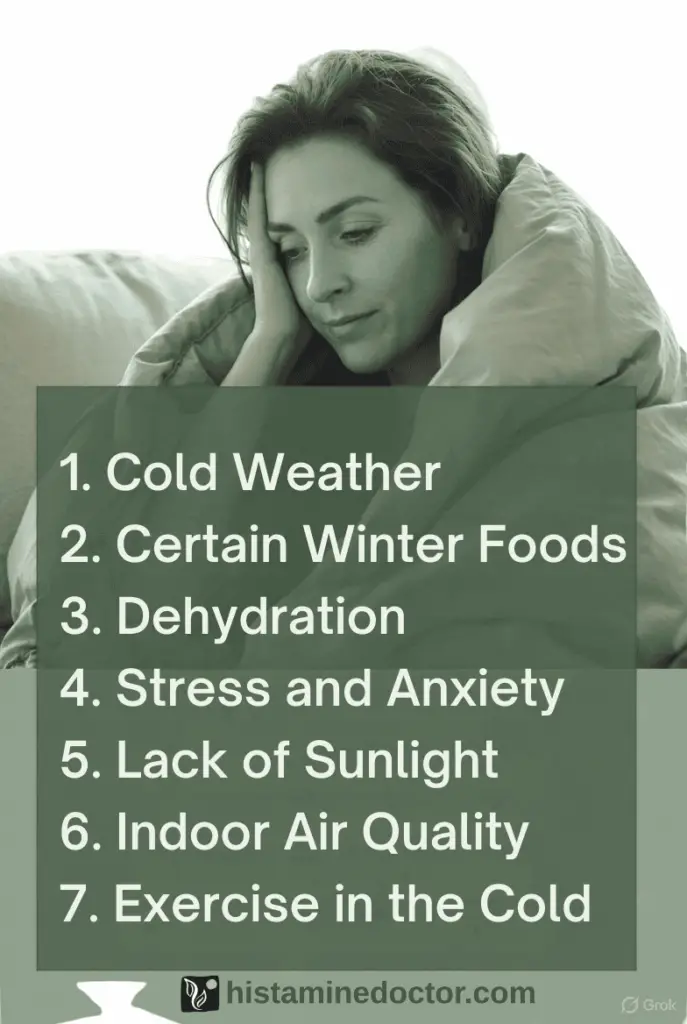When you think of winter, what do you envision? Do you picture yourself sipping hot cocoa by the fire and nibbling on comfort food?
Those are the kinds of winter activities we look forward to. But if you suffer with histamine intolerance, winter and the holidays takes on a different perspective.
Having worked with many people with histamine intolerance and food sensitivities, I’ve heard the same story over and over. “Winter makes my histamine intolerance symptoms worse.”
The cold weather brings on headaches, fatigue, hives, and signs and symptoms of histamine imbalance.
Is this all speculation or do cold winters really make histamine intolerance symptoms worse? Let’s dig in.

Why Histamine Intolerance Symptoms Flare in Cold Weather
If you live in a part of the world where temperatures drop below freezing, you’re familiar with the deep chill you feel outdoors.
When you step outside into 30-degree F. the cold air lowers your body temperature. and the blood vessels that carry life-saving oxygen clamp down too.
And what about the cold air? When you breathe it in, like a cold shock, it tightens your bronchioles, the tubes that carry air in and out of your lungs do too.
If you have asthma, your bronchioles may clamp down to the point that it’s hard to breath without wheezing.
But what happens when you go back inside and warm up? Are out of the woods? Not quite! The warming up phase after a bout of cold exposure, can trigger your mast cells to release histamine too.

And then comes the flushing, itchy skin, or even hives. The medical term for allergy symptoms in cold weather is “cold urticaria” and it’s more common than people think.
Believe it or not, some people really are allergic to the cold.
You don’t even need to a sustained blast of cold exposure to trigger this response.
Some people experience a histamine surge and histamine overload symptoms when they open the door to get something out of the freezer.
Your response depends on how sensitive you are to low temperatures.
Dry Indoor Heat and Histamine Intolerance: Why Winter Air Can Worsen Symptoms
In the winter, we often spend more time indoors. If you feel like your nose and throat are dry and your skin parched, you’re probably suffering from the ill effects of dry indoor air caused by winter heating systems.
When your mucous membranes become too dry and parched, they become irritated and, sometimes inflamed. That’s when mast cells start releasing our good friend histamine.
And then there’s the issue of indoor allergies. When your heat up your home to the point that the air is dry, it creates an environment where dust mites thrive.
At the other extreme, when you add humidifier and are too aggressive with humidifying the air, mold can build up in damp corners.
Dust mites and mold are both pesky histamine triggers that can bring on histamine intolerance symptoms.
So, while you’re cozying up inside, your body may be quietly battling an overload of histamine.

Winter Health Challenges: How Cold Weather Strains Your Immune System
One of the other concerns related to histamine triggers is the inevitable colds and flu viruses you’ll be exposed to as you spend more time indoors around people. They’re practically part of the season!
Here’s why that’s problematic for histamine intolerance.
If you’re exposed to a cold of influenza virus, your immune system does its best to fight it off.
One way your immune system defends you against a takeover by viruses is by releasing histamine. That’s mainly the job of immune cells called mast cells.
If you have histamine intolerance, even a normal immune response to a virus can trigger unpleasant symptoms related to histamine overload, like a runny or stuff nose, headaches, or fatigue.
The symptoms can be pronounced enough to make you think you actually have a virus, rather than just fighting one off.
Comfort Foods and Hidden Histamine Triggers
Who doesn’t love comfort food, snacks and meals that make us feel cozy and warm when it’s gray outside?
Unfortunately, winter fare leans heavily toward hearty stews, aged cheeses, cured meats, and leftovers.
While they might be comforting if you break down histamine quickly, they’re a threat to your well-being if you have histamine intolerance.
As you’re already aware, keeping leftovers for even a day or two can cause histamine-producing bacteria to taint your food with histamine.
That reheated chili might taste great, but for someone with histamine intolerance, it can spell trouble.

The good news? Winter also brings root vegetables like carrots, sweet potatoes, and turnips. Many of these are naturally low in histamine.
So, you can balance your diet by eating more of these low-histamine foods that make their rounds at the holidays.
Choosing fresh, seasonal produce is one of the simplest ways to keep symptoms in check.
Most Common Histamine Intolerance Winter Symptoms
From working with people who have histamine intolerance, you hear many of the same complaints as the temperature drops. Examples:
- Headaches or migraines become more frequent or disabling
- Hives or itching after being outside in the cold
- Stuffy nose indoors
- Fatigue and brain fog that becomes more frequent or disabling
- Sensitivity to leftovers or heavy winter meals
Not everyone experiences all of these, but the seasonal pattern is hard to miss.
Managing Winter Histamine Intolerance Symptoms Effectively
You don’t have to suffer in misery during the cold months when your body is exposed to factors that trigger histamine release. Here are some adjustments that can make a big difference:
- Add moisture to the air you breathe: Invest in a humidifier to add moisture into dry rooms but don’t raise the humidity above 50%. Higher and it can trigger mold growth. Also, add an air purifier to reduce dust and allergens.
- Layer up when you go outdoors: Gloves, scarves, and extra layers are the best way to protect your skin from cold temperatures that trigger histamine release.
- Eat fresh: Toss uneaten leftovers. Storing leftovers, even for a day or two, is enough to increase their histamine content.
- Support your immune system naturally: Enjoy low-histamine foods (like apples or onions) rich in vitamin C and quercetin, compounds that help stabilize mast cells.
- Know your histamine triggers: Be consistent with keeping a food and symptom journal. You can look back at your symptom journal to help you identify whether it’s the cold air, the holiday leftovers, or something else that sets you off.
Living With Histamine Intolerance in the Winter: One Patient’s Experience
Here’s what a patient told me about her experience with histamine intolerance and winter weather. Even during the winter, she would venture outside on freezing winter mornings to walk her dog.
When she came back from her outdoor excursion, her arms would break out in itchy, red welts, a sign of massive histamine release.
At first, she thought she was allergic to her faithful dog.
But fortunately, it wasn’t her dog but exposing her body to the cold that was triggering her histamine overload.
By wearing gloves and a scarf, and limiting her time outside on frigid days, she cut her symptoms dramatically.
Her story is a reminder that small lifestyle tweaks can make a difference in whether your histamine levels rise this winter.
Here’s a summary of histamine triggers that you might experience in the winter:

Histamine Intolerance Is a Dynamic Condition
There’s something else you should know about histamine and winter weather. It’s not a static condition.
The symptoms you experience with histamine intolerance often vary with the environment you’re in, what you eat and drink, and even your stress levels.
The reason winter is problematic is it combines several histamine triggers, cold air, indoor allergens, seasonal infections, and comfort foods, into one activity-packed season.
Therefore, it’s not surprising that many histamine intolerance sufferers feel worse during these months.
But before getting discouraged about the prospect of a winter full of histamine overload symptoms, know that it’s also a season of opportunity
It’s your chance to enjoy fresh root vegetables, cozy routines, and mindful preparation that can help you manage symptoms.
So, it’s time to take proactive steps instead of feeling blindsided by flare-ups.
Winter Histamine Triggers: Awareness Matters
So, does winter make histamine intolerance worse? For many people, yes. Cold air, dry indoor environments, allergens, and seasonal foods all contribute to higher histamine levels.
But awareness is half the battle.
You have options! By adjusting your environment, choosing fresh low-histamine foods, and supporting your body with nutrients, you can sail through the winter with fewer histamine intolerance symptoms.
So, what’s the take-home message? As the temperatures drop, be strategic. Winter is a time to experiment with new low-histamine recipes.
Think positive and reframe the arrival of winter as a chance to invest in cozy indoor air solutions.
And, of course, pay closer attention to your body’s signals. With the right approach, winter can be less of a challenge and maybe even a season you look forward to.
References:
- Cold urticaria-Cold urticaria – Symptoms & causes – Mayo Clinic. Mayo Clinic. Published 2025. Accessed November 19, 2025. https://www.mayoclinic.org/diseases-conditions/cold-urticaria/symptoms-causes/syc-20371046.
- Low Histamine Diet. https://www.hopkinsmedicine.org/-/media/johns-hopkins-childrens-center/documents/specialties/adolescent-medicine/cfs-low-histamine-diet.pdf
- Maintz L, Novak N. Histamine and histamine intolerance. The American Journal of Clinical Nutrition. 2007;85(5):1185-1196. doi:https://doi.org/10.1093/ajcn/85.5.1185.
- Yang S, Chen L, Zhang H, et al. Beyond the itch: the complex interplay of immune, neurological, and psychological factors in chronic urticaria. Journal of Neuroinflammation. 2025;22(1). doi: https://doi.org/10.1186/s12974-025-03397-4

